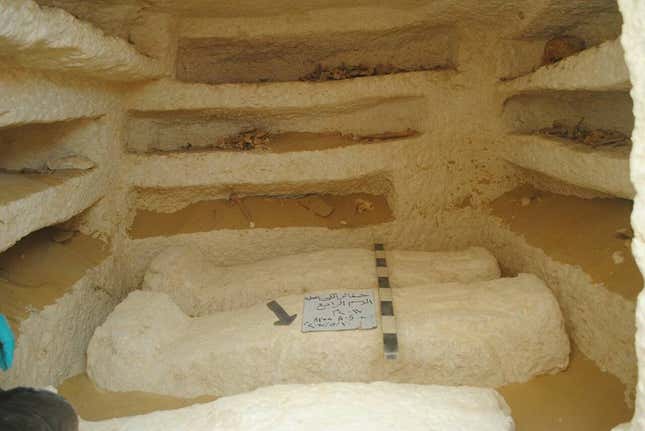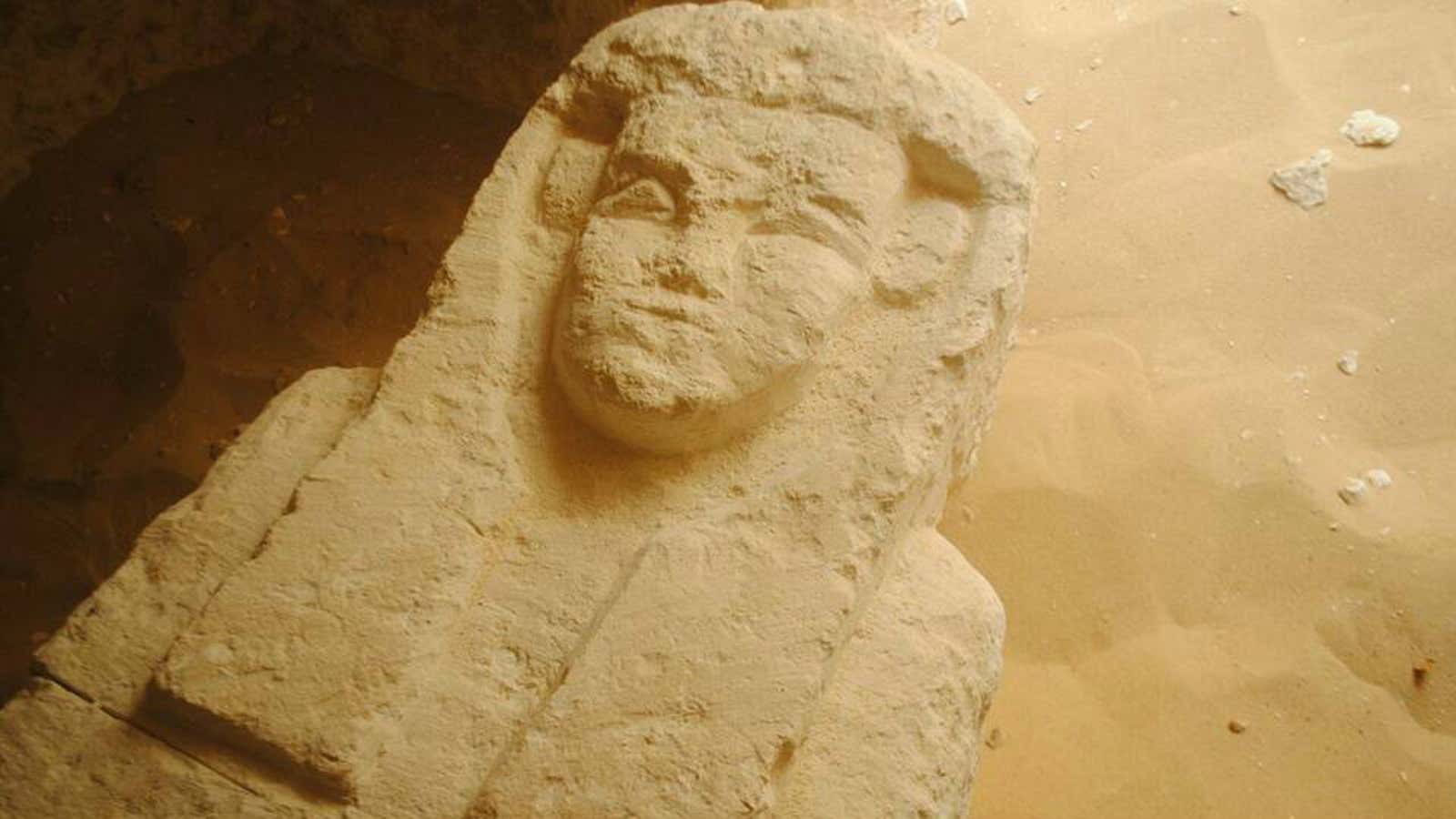An archaeological mission in Minya, southern Egypt, has turned three Ptolemaic tombs, the country’s ministry of antiquities announced on its Facebook page on Tuesday (Aug. 15). Clay fragments at the discovery site indicate the tombs are around 2,000 years old.
The tombs are said to contain sarcophagi of different shapes and sizes, one of which was sculpted in the shape of a human face. Ayman Ashmawy, an official at the ministry of antiquities, says the find indicates “the area was a great cemetery along a long span of time.” Ashmawy says the find is “very important” as the mission continues to explore the excavation site in Al-Kamil Al-Sahrawi, Minya.
The mission began back in 2015 when the ministry discovered “a collection of five sarcophagi of different shapes and sizes as well as remains of a wooden sarcophagus,” according to its statement.

Ali Al- Bakry, head of the mission, says the recently discovered tombs have different architecture designs compared to prior finds.
In the first tomb, excavators found “a burial chamber containing four sarcophagi with anthropoid lids” as well as nine burial holes. In the second, the remains of two sarcophagi were discovered along with a six holes for burial one of which was for a small child—a first since the mission began. Studies of the discovered bones show that they’re remains of “men, women and children of different ages.”
Excavation remains ongoing at the third tomb.
